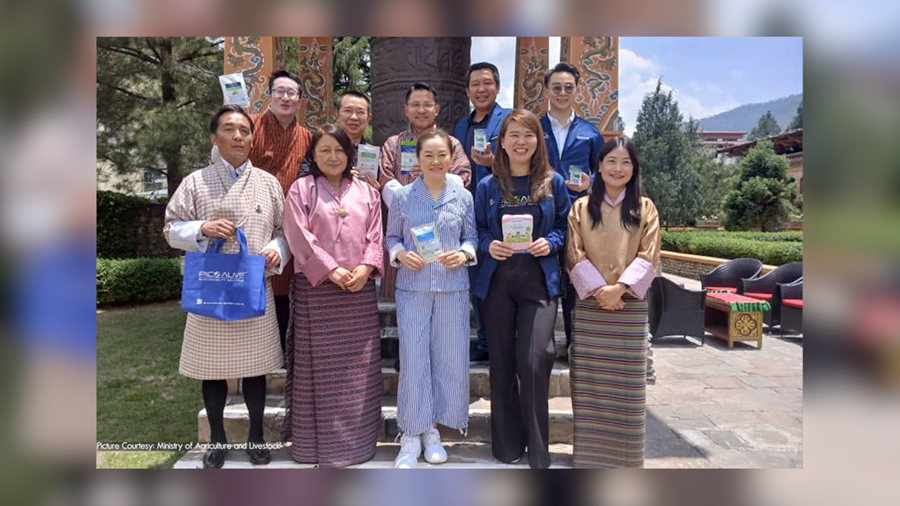
In the Bhutan Agri-food Trade and Investment Forum, BATIF held in the capital last month, four international companies from different countries expressed interest in collaborating with Bhutan. It includes collaborating in the fields of organic farming, seed breeding, and production, and exporting quinoa and other products. The event generated more than 1.5 million ngultrum in sales according to the agriculture ministry.
 According to the event report shared by the agriculture ministry, the PRAN-RFL Group in Bangladesh expressed interest in organic farming in Bhutan, intending to grow organic produce in Bhutan and export them to Bangladesh and other countries.
According to the event report shared by the agriculture ministry, the PRAN-RFL Group in Bangladesh expressed interest in organic farming in Bhutan, intending to grow organic produce in Bhutan and export them to Bangladesh and other countries.
Japan’s Oshiye and Company Limited highlighted the potential of hybrid seed breeding and production in Bhutan due to its landscape and favorable weather conditions.
The Satguna Group of Companies in India showed interest in signing a Memorandum of Understanding with the Food Corporation of Bhutan to trade and explore products such as quinoa, buckwheat and ginger. Discussions were also held on setting up a startup accelerator for agro-food businesses, enhancing farm mechanisation and establishing mini food parks among others.
Similarly, Thailand’s Pico Alive company, which provides solutions to environmental problems, also expressed their interest in collaborating with Bhutan.
Agriculture and Livestock Minister, Younten Phuntsho said, “At the event, we were able to showcase our products, providing opportunities to entrepreneurs. The main objective of the event was for local entrepreneurs and representatives from foreign companies to collaborate and seek opportunities, and we achieved it. Some international companies also showed interest in collaborating with our local entrepreneurs.”
Local entrepreneurs shared the challenges faced by Bhutanese start-ups.
Ugyen Tshering, a local entrepreneur based in Thimphu said, “I think the Bhutanese market is quite small and that puts us in a very risky position. Most of our start-ups barely even scale, they remain home-based and never really go big. Even though there is a market outside, our entrepreneurs do not necessarily have the financial resources to execute it. We also seem to lack the understanding and certain know-how of how the international market works.”
They also shared how forums such as BATIF help them promote their products and attract investors.
Ugyen Tshering added, “Events like BATIF play a critical role for entrepreneurs to gain exposure and meet with foreign investors. It is also a great learning experience to understand what the general sentiments are around our products and how the users feel, which I think is very critical. There have been meetings with a lot of interesting people who understand the outside market better, who are very difficult to find on our own. Those kind of things can only happen through a forum like this.”
Similarly, Santi Prasad Bajgai, a businessman based in Samdrup Jongkhar who deals in soap making said, “Forums like this is an opportunity to showcase our products and we can interact with the people here. They come here, look at my products, and buy them. Some people want to use organic, chemical-free soaps and they love my product.”
Likewise, Dechen Pelden, a businesswoman based in Trongsa said, “People come up with different products from their communities, for instance, I produce this green tea. Drinking green tea is not common in Bhutan and platforms like this are helping us a lot. When we participate in forums like this, it is an opportunity for us to interact with foreign investors. If they are interested in collaborating with us, it will benefit both entrepreneurs and our country.”
A total of 40 exhibitors and 12 food vendors participated in the five-day event.
The exhibitors’ total sales amounted to almost 1.2 million ngultrum while the food stalls’ made almost 440,000 ngultrum.
Deki Lhazom
Edited by Kipchu








